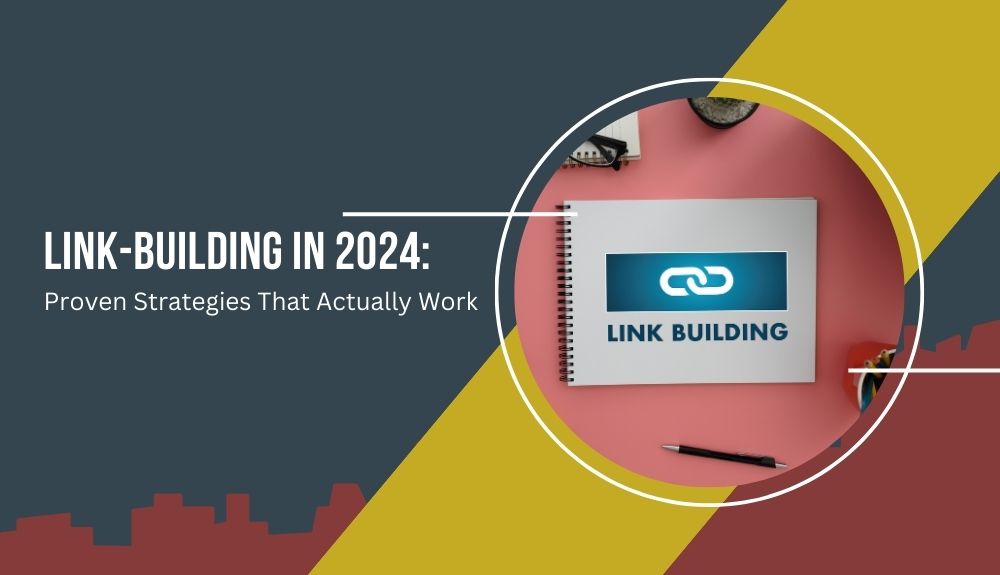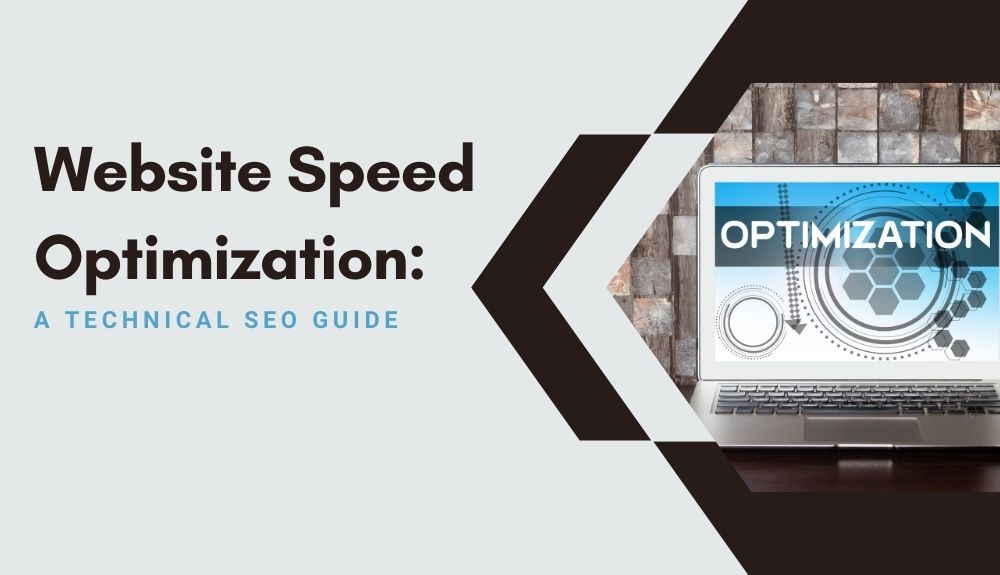Are you struggling to improve your website’s authority and increase organic traffic? In today’s competitive digital landscape, link building remains a crucial aspect of driving SEO success. But with ever-changing algorithms and evolving best practices, are you equipped with the right strategies to dominate the SEO game in 2024?
Welcome to our blog, “Link-Building in 2024: Proven Strategies That Actually Work.” In this informative and in-depth article, we will explore the most effective and ethical link building techniques that can elevate your website’s search rankings and boost its online presence.
Throughout this blog, we’ll delve into a comprehensive range of topics, including:
1. Creative approaches to building high-quality backlinks in a post-pandemic world.
2. The importance of social media and influencer outreach in link building.
3. Leveraging content marketing and guest blogging opportunities for powerful backlinks.
4. Strategies like broken link building and resource page link building that still yield impressive results.
5. Exploring the latest trends in natural link building and anchor text optimization.
6. Case studies and success stories of businesses that have implemented effective link-building tactics.
7. A handy checklist of top link-building practices for 2024.
Whether you’re a website owner, SEO professional, or business looking to enhance your online visibility, this blog will provide you with actionable strategies and insights to elevate your link-building game. Stay tuned for our upcoming articles packed with invaluable knowledge to keep you ahead in the digital race.
Introduction to Link Building Strategies for 2024
In the world of SEO, link building continues to play a crucial role in improving search engine rankings and driving organic traffic to your website. As we enter 2024, it’s essential to understand the changing landscape and adapt our strategies accordingly. Traditional link building techniques may not yield the same results as search engine algorithms evolve and become more sophisticated.
In the upcoming year, it is crucial to incorporate creative and effective link building strategies to stay ahead of the competition and establish your website as an authoritative source in your niche. These strategies not only help boost your website’s visibility but also enhance its overall credibility and trustworthiness.
By focusing on generating high-quality backlinks from authoritative sources, you can significantly improve your website’s search engine rankings and increase organic traffic. In this section, we will explore some innovative link building strategies specifically designed for the year 2024.
So, buckle up and get ready to dive into the world of link building in 2024. Discover the latest tactics, techniques, and best practices that can help you achieve remarkable results. By implementing these strategies, you can propel your website to new heights and gain an edge over your competitors.
Let’s explore the most effective and ethical link building strategies that will give your website the boost it needs in search engine rankings and drive organic traffic to your virtual doorstep.
Leveraging Testimonials In Your Niche
In the world of link building, testimonials can be a powerful tool to establish credibility and build high-quality backlinks. When you leverage testimonials in your niche, you not only showcase the positive experiences of your customers but also attract the attention of other websites and influencers who are interested in featuring reliable, trustworthy content. Here are some step-by-step instructions on how to generate positive testimonials and effectively reach out to target websites:
1. Identify your satisfied customers: Reach out to your existing customer base and identify those who have had a positive experience with your product or service. These satisfied customers will become valuable assets for generating testimonials that can enhance your link-building efforts.
2. Request testimonials: Craft a friendly email or provide a simple form on your website where customers can easily submit testimonials. Make sure to ask for specific details about their experience, the problem they faced, and how your product or service helped them overcome it. Encourage them to be as detailed and specific as possible.
3. Follow-up: If you don’t receive testimonials from all your customers, consider following up with a friendly reminder email. Sometimes, a gentle reminder can be enough to prompt customers to share their positive experiences.
4. Reach out to target websites: Once you have gathered a collection of positive testimonials, identify websites in your niche that may benefit from featuring your testimonials. Research the target websites to understand their audience and context. Personalize your outreach by highlighting how the testimonials can add value to their content and provide social proof.
5. Craft a compelling pitch: When reaching out to target websites, craft a concise and compelling pitch that emphasizes the unique perspectives and experiences shared in the testimonials. Highlight the benefits of featuring your testimonials and how they can add credibility and value to their readers.
Remember, testimonials are not only a powerful link building strategy but also a way to showcase the positive experiences of your customers. By effectively leveraging testimonials in your niche, you can attract the attention of relevant websites and influencers, build quality backlinks, and establish your brand as a trusted authority in your industry.
Supporting New Business Growth
In the ever-evolving digital landscape, link building has become a crucial strategy to support new business growth. By acquiring high-quality backlinks from reputable websites, new businesses can enhance their online presence, increase brand visibility, and improve search engine rankings. Here are some effective tips for finding crowdfunding sites and developing relationships with new businesses:
1. Explore Crowdfunding Platforms
Look for popular crowdfunding platforms that align with your industry or niche. These platforms often showcase new and innovative businesses seeking support. By reaching out to these platforms, you can potentially secure backlinks and gain exposure to a wider audience.
2. Engage with New Businesses
Establish connections with other new businesses in your niche. Collaboration with like-minded entrepreneurs can lead to mutual benefits, including cross-promotion and backlink opportunities. Consider joining startup communities, attending networking events, or participating in industry forums to connect with new businesses.
3. Offer Valuable Resources
Proactively provide valuable resources, such as guides, case studies, or research reports, to new businesses within your industry. This goodwill gesture can lead to link-building opportunities as they may reference or share your content on their websites.
4. Seek Partnerships and Collaborations
Identify potential partnership opportunities with new businesses that complement your offerings. By collaborating on joint projects or campaigns, you can leverage each other’s networks and gain valuable backlinks from their websites.
5. Outreach to Industry Influencers
Reach out to influencers, bloggers, and journalists who cover the startup ecosystem. Offer them unique insights or interesting stories about new businesses in your industry. If they find your information valuable, they may mention or link back to your website in their content.
Remember, establishing relationships and providing value should be the foundation of your link-building efforts. By supporting new business growth through strategic link building, you can position your website as a trusted authority in your industry while fostering connections with other entrepreneurs.
Sponsorship of Real World Events
Sponsoring real-world events can be a powerful link-building strategy in 2024. By aligning your brand with reputable events, you can gain valuable backlinks and enhance your online presence.
Finding Events to Sponsor
When searching for events to sponsor, consider your target audience and industry. Look for relevant conferences, trade shows, and industry-specific gatherings. Networking events and charity functions can also be excellent opportunities for sponsorship.
Leveraging Partnerships
Once you identify potential events, explore partnership opportunities to maximize your link-building potential. Collaborate with event organizers to secure prominent branding placements, such as logos on event websites, banners at the venue, and mentions in promotional materials. These placements often come with backlinks to your website, boosting your SEO efforts.
Engaging with Attendees
To make the most of your sponsorship, actively engage with event attendees. Offer exclusive discounts or promotions to event participants, and encourage them to visit your booth or website. Additionally, consider hosting workshops or presentations to position yourself as an industry expert and increase your chances of getting mentioned and linked to by attendees in their event recaps or blog posts.
Building Relationships
A key aspect of event sponsorship is building relationships with event organizers, attendees, and other sponsors. Connect with them on social media platforms and participate in relevant discussions. Engaging in conversations and sharing valuable insights can lead to opportunities for collaboration and future backlinks.
Key Takeaways
– Sponsorship of real-world events is an effective link-building strategy in 2024.
– Identify events relevant to your target audience and industry.
– Collaborate with event organizers for prominent branding placements and backlinks.
– Engage with attendees by offering exclusive offers and hosting workshops.
– Build relationships with event organizers, attendees, and sponsors for future link-building opportunities.
Remember, sponsoring real-world events not only helps in acquiring high-quality backlinks but also reinforces your brand’s authority and reputation in your industry.
Establishing a Presence on Social Media
With the ever-increasing influence of social media in today’s digital landscape, building backlinks through these platforms has become an essential element of any comprehensive link-building strategy. Social media not only allows you to engage with your target audience directly but also presents opportunities to earn high-quality backlinks that can significantly boost your website’s authority and visibility in search engine rankings.
To effectively utilize social media for link building, consider implementing the following strategies:
1. Create Shareable Content: Craft compelling and valuable content that resonates with your audience and encourages them to share it on their social media profiles. By creating shareable content, you increase the chances of acquiring backlinks as people discover and reference your content on their websites or blogs.
2. Build Relationships with Influencers: Engage with influential individuals in your niche and develop meaningful relationships with them. Collaborate on projects, mention them in your content, and promote their work. When you establish strong connections with influencers, they may be more inclined to share your content with their own followers, resulting in valuable backlinks.
3. Participate in Community Discussions: Join relevant groups and communities on platforms like Facebook and actively participate in discussions. Share your expertise, provide valuable insights, and include links to relevant content to contribute to the conversation. By demonstrating your knowledge and expertise in these communities, you increase the likelihood of others referencing your content and linking back to it.
4. Promote Your Content: Regularly share your content on social media platforms, including links to your website or blog. Craft engaging and enticing captions that encourage users to click on the link and explore your content. The more exposure your content receives on social media, the higher the chances of it being shared and linked to by others.
Remember, when utilizing social media for link building, it’s crucial to build genuine connections and provide valuable content. Always focus on engaging with your target audience and offering them solutions, insights, or entertainment. In doing so, you’ll not only earn high-quality backlinks but also establish a strong online presence within your niche.
Strategic Approach to Guest Blogging

Guest blogging continues to be an effective link-building strategy in 2024, but the approach has evolved. To maximize the benefits, it’s important to have a strategic approach that focuses on finding the right prospects, qualifying blogs, reaching out effectively, creating high-quality guest post content, and building meaningful relationships. Here are the key steps to follow:
Step 1: Finding Prospects
Start by identifying websites and blogs relevant to your niche. Look for platforms that cater to your target audience and have a good reputation. Use advanced search operators and SEO tools to discover guest blogging opportunities. Some search operators like “[your niche] + write for us” or “[your niche] + guest post guidelines” can help you find websites actively seeking guest contributors.
Step 2: Qualifying Blogs
Once you have a list of potential prospects, it’s crucial to evaluate their quality. Consider factors such as domain authority, audience engagement, content relevance, and the overall credibility of the blog. Look for blogs with a strong readership and a good reputation in your industry. Focus on platforms that align with your expertise and can provide valuable exposure to your brand.
Step 3: Reaching Out
Craft personalized and compelling outreach emails to website owners or editors. Start by introducing yourself, explaining why you’re interested in contributing to their blog, and demonstrating your expertise on the topic. Mention specific ideas or topics you can write about to show that you’ve done your research. Keep your email concise, direct, and respectful.
Step 4: Creating Guest Post Content
When writing your guest post, ensure it aligns with the blog’s content style and provides value to their audience. Focus on producing high-quality, well-researched content that showcases your expertise. Use engaging headings, subheadings, and bullet points to make it easy to read and scan. Incorporate relevant keywords naturally throughout the article to optimize it for search engines.
Step 5: Building Relationships
Building relationships with blog owners and editors is vital for long-term guest blogging success. Engage with them on social media, share their content, and leave thoughtful comments on their blog posts. Follow up after your guest post is published and express your gratitude. Maintaining these relationships can lead to future guest blogging opportunities and potential collaborations.
By following this strategic approach to guest blogging, you can establish your expertise, improve your website’s authority, and generate high-quality backlinks. Remember to prioritize relevance, quality, and value to both the blog and its audience. Guest blogging done right can be a win-win for both parties involved.
Take action now and start exploring the vast opportunities that guest blogging presents in 2024.
Helping Clean Up The Web
One effective link-building strategy for 2024 is to focus on cleaning up broken and outdated links on websites. By helping website owners fix these issues, you can not only improve their user experience but also gain valuable backlinks for your own site. Here’s how to implement this strategy:
Defining Target Websites
Start by identifying the websites in your niche that have a high number of broken or outdated links. These may include blogs, resource pages, or industry directories. Make a list of these target websites to streamline your link-building efforts.
Finding Broken Links
Use SEO tools like Ahrefs or Moz to find broken links on your target websites. These tools can scan the pages and provide you with a list of broken links that need to be fixed. Look for broken links that are relevant to your content or industry.
Reaching Out to Bloggers
Once you’ve identified the broken links, reach out to the bloggers or website owners and let them know about the issue. Be polite and provide them with the specific page and broken link you’ve found. Offer to help them by providing a working link or suggesting updated content.
Emphasize the Benefits
When reaching out to bloggers, highlight the benefits of fixing broken links for their website. Mention that it improves user experience, increases their website’s credibility, and helps with their SEO efforts. Position yourself as a helpful resource rather than just asking for a backlink.
Building Relationships
Building relationships with bloggers is crucial for successful link-building. Engage with their content, leave thoughtful comments, and share their posts on social media. Establishing a genuine connection will increase the likelihood of them fixing the broken links and potentially linking back to your content in the future.
By focusing on cleaning up broken and outdated links, you not only contribute to improving the web but also build valuable backlinks for your website. This strategy demonstrates your expertise, helps establish trustworthiness, and contributes to a positive user experience.
Remember, always approach this strategy ethically and genuinely, ensuring that you provide value to the website owners and their users.
Harnessing the Power of Internal Link Building
Internal link building is a crucial aspect of SEO that can significantly impact a website’s search engine rankings and overall visibility. By strategically linking relevant pages within your own website, you can guide search engine crawlers, improve user experience, and increase the overall authority of your site. In this section, we will explore the value of internal links and provide guidance on how to identify and create effective internal links within your website to improve search engine rankings.
The Value of Internal Links for SEO
Internal links serve multiple purposes when it comes to SEO. Firstly, they help search engine crawlers navigate and understand the structure of your website. By linking relevant pages together, you can provide search engines with clear pathways to discover and index all the important content on your site.
Secondly, internal links distribute link equity throughout your website. When you link from a high-authority page to a lesser-known page within your site, you pass on some of that authority, boosting the overall ranking potential of the linked page. This helps ensure that all your pages have a fair chance of ranking well in search results.
Additionally, internal links improve user experience by allowing visitors to easily navigate and find related content on your site. By providing clear and relevant pathways, you can encourage users to explore more of your website and spend more time engaging with your content.
Identifying Opportunities for Internal Links
To maximize the effectiveness of your internal link building efforts, it is essential to identify the right pages to link together. Start by conducting a comprehensive audit of your website’s structure and content. Look for relevant and related articles, blog posts, or product/service pages that can be interconnected.
Keyword research can also help identify opportunities for internal links. Identify pages that rank for similar or related keywords and create internal links between these pages. By linking pages with similar content or topics, you can boost their relevance in search engine rankings.
Creating Effective Internal Links
When creating internal links, keep the following best practices in mind:
1. Use descriptive anchor text: Instead of using generic terms like “click here,” use anchor text that accurately describes the linked page’s content. This not only helps search engines understand the context but also improves accessibility for users.
2. Link relevant pages: Choose pages that are contextually relevant to link together. Ensure that the linked pages provide additional value and insights to users.
3. Maintain a natural link structure: Avoid overstuffing links or creating an excessive number of links on a single page. Keep the link structure natural, ensuring that it flows logically and enhances user experience.
4. Consider page hierarchy: Take advantage of your website’s hierarchy to create a logical flow of links. Link deeper pages to higher-level category pages to ensure all pages receive sufficient link equity.
Wrapping it up, internal link building plays a vital role in improving your website’s search engine rankings and overall user experience. By strategically creating and optimizing internal links, you can guide search engines, distribute link equity, and provide valuable navigation pathways for your audience. So, invest time in identifying relevant opportunities within your website and create effective internal links to improve your SEO efforts.
Replicating Competitors’ Best Links
To enhance your website’s backlink profile, one effective strategy is to analyze your competitors’ backlinks and replicate their most valuable links. By identifying and acquiring similar links, you can boost your website’s authority and improve search engine rankings. Here are step-by-step instructions on how to implement this strategy:
Step 1: Create a Competitor Analysis
Start by identifying your top competitors in your niche. Conduct a thorough analysis of their websites, paying special attention to their backlinks. Tools like SEMrush and Ahrefs can help you gather comprehensive data on your competitors’ links.
Step 2: Analyze Competitors’ Backlinks
Using the tools mentioned above, analyze your competitors’ backlinks to identify the high-quality and authoritative ones. Look for links from reputable sources, such as industry-leading websites, authoritative blogs, and relevant publications. Focus on links that have high domain authority and relevance to your niche.
Step 3: Acquire Similar Links
Once you have identified your competitors’ best links, it’s time to acquire similar ones for your own website. Reach out to the same websites and influencers that are linked to your competitors. Provide them with valuable content or resources that align with their interests and audience. Personalize your outreach to increase your chances of success.
Step 4: Monitor and Track Results
As you start acquiring similar links, it’s crucial to regularly monitor and track their impact on your website’s performance. Use Google Analytics and other SEO tools to analyze the traffic and rankings associated with the acquired links. Adjust your approach based on the outcomes and continue refining your link-building strategy.
By replicating your competitors’ best links, you can leverage their efforts, tap into their resources, and improve your website’s authority and visibility. Remember to always prioritize quality over quantity and focus on building natural and relevant links that will stand the test of time.
Getting Listed in Link Roundups
Getting featured in link roundups can be an effective way to gain exposure and acquire valuable backlinks for your website. Link roundups are curated lists of the best content from around the web, usually centered around a specific topic or niche. Here are some tips to help you get listed in link roundups and maximize the benefits:
1. Create High-Quality Content:
Producing high-quality, informative, and well-researched content is crucial to increase your chances of being featured in link roundups. Focus on creating comprehensive and unique content that adds value to your target audience.
2. Research Relevant Link Roundups:
Spend time researching and identifying link roundup opportunities that align with your niche or industry. Look for websites or bloggers who regularly curate link roundups and have a substantial following. Tools like Buzzsumo and Google Alerts can help you discover relevant roundups.
3. Build Relationships:
Networking and building relationships with the owners or curators of link roundup sites can greatly increase your chances of getting included. Engage with their content, leave thoughtful comments, and share their posts on social media. This will help you establish rapport and make your pitch more likely to be considered.
4. Pitch Your Content:
Craft a compelling pitch that clearly explains why your content should be included in the roundup. Highlight the unique value and insights that your content provides and how it aligns with the roundup’s theme. Personalize your pitch and demonstrate your familiarity with their previous roundups.
5. Be Timely and Relevant:
Stay on top of industry trends and create content that is timely and relevant. This increases the likelihood of your content being a good fit for upcoming roundups. Consider creating evergreen content that remains relevant over time, making it suitable for multiple roundup opportunities.
6. Monitor and Follow Up:
Regularly monitor the websites or blogs you’ve pitched to see if they have included your content in their roundups. If your content gets featured, be sure to thank them and share the roundup on your own platforms to further amplify its reach. If you don’t hear back after a reasonable time, follow up politely to inquire about the status of your pitch.
By focusing on creating high-quality content and effectively pitching relevant link roundup opportunities, you can increase your chances of getting listed and benefit from the exposure and backlinks they provide. Remember to track your progress and analyze the impact of different link roundup strategies to refine and optimize your approach.
Getting Listed on Resource Pages
When it comes to effective link building strategies in 2024, getting listed on resource pages can significantly boost your website’s authority and visibility. Resource pages are web pages that curate and compile useful links and information on specific topics, making them valuable sources for attracting high-quality backlinks.
The Importance of Resource Pages
Resource pages are frequently visited by users seeking comprehensive information on a particular subject. By getting your website listed on relevant resource pages, you can tap into their established authority and reach a wider audience. These pages often have a high domain authority, which boosts the credibility and trustworthiness of your own website in the eyes of search engines.
Finding Relevant Resource Pages
To find relevant resource pages in your niche, start by conducting a thorough search using search engine queries such as:
– “your keyword” + “resources”
– “your keyword” + “useful links”
– “your keyword” + “recommended websites”
Explore the search results to identify resource pages that align with your website’s content and target audience. Look for pages that have a good number of outbound links and regularly update their content.
Making Effective Pitches
Once you’ve identified resource pages that are a good fit for your website, it’s time to make effective pitches to the website owners or administrators. Here are some tips to improve your chances of getting listed:
1. Personalize your outreach: Address the website owner by name and show genuine interest in their resource page. Explain why your website’s content would be a valuable addition.
2. Highlight relevance and quality: Emphasize how your website’s content aligns with the resource page’s topic and provides unique insights or valuable resources that can benefit their audience.
3. Offer reciprocal benefits: Suggest reciprocal linking opportunities or offering to promote their resource page on your website. Building mutually beneficial relationships can increase the likelihood of getting listed.
4. Provide ready-to-use content: Offer a brief description or snippet of your content that the website owner can directly insert on their resource page. This makes it easier for them to include your website while maintaining the consistency of their resource page.
Remember to be polite, respectful, and professional in all your interactions with the website owners. Building relationships based on trust and mutual benefit can lead to long-term partnerships.
By focusing on getting listed on resource pages, you can enhance your website’s visibility, attract high-quality backlinks, and establish your authority in your niche. Implementing this strategy in 2024 can help you stay ahead in link building and achieve sustainable growth for your website.
Creating Data-Driven Content

Data-driven content is a powerful tool for attracting high-quality backlinks and establishing your website as a reputable source of information. By leveraging unique data and insights, you can create content that not only provides value to your audience but also catches the attention of other website owners and influencers in your niche. Here are some tips on how to create and promote data-driven content effectively:
1. Conduct Original Research: Start by carrying out your own research and gathering data that is relevant to your industry or topic. This could involve surveys, experiments, or analyzing existing data sets. The key is to offer something unique and valuable that hasn’t been seen before.
2. Present Data in an Engaging Format: Once you have collected your data, present it in a visually appealing and easy-to-understand format. Infographics, charts, and graphs are excellent ways to make your data visually appealing and shareable.
3. Share Your Findings: Publish your data-driven content on your website or blog and make it easily accessible to your audience. Consider creating a dedicated landing page or resource hub for your data-driven content. This will make it easier for others to link to and reference your content.
4. Promote Your Content: Reach out to relevant websites, influencers, and industry experts who may find your data-driven content interesting or useful. Personalize your outreach and explain why your content is valuable and worth linking to. Social media platforms, industry forums, and online communities are great places to share and promote your content.
Remember, the key to successful data-driven content is to provide unique insights and actionable information that others in your industry can benefit from. By creating content that is both informative and valuable, you can attract high-quality backlinks and establish yourself as a trusted authority in your niche.
Leveraging Hot Topics
In the world of link building, staying up to date with the latest trends and leveraging hot topics can significantly boost your chances of attracting backlinks. By tapping into what’s currently popular and relevant, you can capture the attention of your target audience and gain valuable link opportunities. Here’s a step-by-step guide on leveraging hot topics to attract backlinks:
1. Identifying popular topics
Start by conducting thorough research to identify hot topics that resonate with your target audience. Monitor social media trends, news outlets, and industry-specific platforms to stay informed about current discussions and interests.
2. Brainstorming content ideas
Once you have identified the popular topics, brainstorm content ideas that align with your niche and expertise. Think creatively about how you can provide unique perspectives or add value to the conversation.
3. Creating compelling content
Craft high-quality, engaging content that stands out from the competition. Use data, case studies, and expert insights to support your ideas and make your content more compelling.
4. Promoting your content
Develop a comprehensive promotion strategy to increase the visibility of your content. Share it on your social media channels, reach out to influencers and industry experts to amplify its reach, and submit it to relevant online communities or forums.
By leveraging hot topics, you can attract attention and spark discussions, increasing the chances of acquiring quality backlinks from authoritative websites and influencers. Remember to always provide valuable and unique insights that offer a fresh perspective on the popular topics in your industry.
Keep in mind that while leveraging hot topics can be an effective strategy, it’s crucial to stay authentic and provide genuine value to your audience. Building long-term credibility and trust should always be your primary goal.
Massaging Influencers’ Egos
Building relationships with influencers in your niche can be a powerful strategy for acquiring valuable backlinks. By appealing to their egos and offering them recognition and exposure, you can establish mutually beneficial relationships that can result in high-quality backlinks to your website. Here are some steps to effectively massage influencers’ egos and build those connections:
1. Craft Compelling Headlines
When reaching out to influencers, your initial email subject line should grab their attention and spark their curiosity. Craft compelling headlines that appeal to their interests and showcase how your content aligns with their expertise. A catchy headline will increase the chances of them opening your email and considering your proposition.
2. Define Relevant Questions
In your email, include thoughtful and relevant questions that demonstrate your interest in their insights and expertise. This approach shows that you value their opinion and are genuinely interested in learning from them. By inviting their input and expertise, you can foster a sense of pride and importance, making them more likely to engage with you.
3. Reach Out to Influencers
After identifying the influencers you want to connect with, reach out to them via email or social media. Be genuine in your approach and explain why you chose to reach out to them specifically. Highlight any shared interests or values, and express your admiration for their work. Personalization is key in making an impression.
4. Build Relationships
Once you’ve initiated contact, foster the relationship by engaging with their content, sharing their insights, and offering your support. Comment on their blog posts and share their content on social media platforms. Show that you are invested in their success and willing to contribute to their community.
Remember, the goal is to build genuine relationships, not just secure backlinks. Cultivate meaningful connections by providing value, showcasing your expertise, and consistently offering support. By massaging influencers’ egos in an authentic way, you can establish long-term partnerships that benefit both parties and result in valuable backlinks to elevate your website’s authority and visibility.
Outsourcing Link Building
Outsourcing link building can be a viable option for website owners looking to improve their search engine rankings and drive organic traffic. However, it is crucial to approach this strategy with careful consideration and discernment. Here are some tips for selecting a reliable link-building service and ensuring the quality of the outsourced work:
1. Assess their track record and experience
When outsourcing link building, it is essential to work with professionals who have a proven track record and extensive experience in the field. Look for agencies or individuals that can demonstrate successful campaigns and results for their previous clients. Ask for case studies or references to evaluate their expertise.
2. Emphasize quality over quantity
Effective link building is not about acquiring numerous low-quality backlinks; it’s about obtaining relevant and high-quality links that contribute to your website’s authority. While some link-building services may promise a large number of backlinks in a short period, prioritize those that focus on quality and adhere to ethical practices.
3. Ensure white-hat practices
Black hat link-building techniques might yield immediate results, but they can harm your website’s reputation in the long run. Make sure the outsourced service follows white-hat practices and adheres to search engine guidelines. Avoid any services that engage in spammy tactics, such as buying backlinks or using automated link-building software.
4. Review their link-building strategies
Have a thorough discussion with the service provider about their link-building strategies. Ask them about the sources they use for acquiring backlinks, the type of websites they target, and their approach to content creation. A reputable provider will have a clear and ethical plan in place that aligns with your website’s goals.
5. Communication and reporting
Maintaining open and transparent communication with the outsourced service is crucial for the success of your link-building campaign. Discuss expectations, deliverables, and reporting schedules right from the beginning. Regular updates and reports on the progress of the campaign will help you stay informed and make any necessary adjustments.
Remember, outsourcing link building is not a one-size-fits-all solution. It requires research, careful selection, and ongoing evaluation. By choosing a reliable and experienced link-building service that prioritizes quality over quantity, you can leverage their expertise to enhance your website’s authority and drive organic traffic.
Determining Backlink Quantity and Indexing
When it comes to link building, it’s crucial to have a clear understanding of the number of backlinks needed to improve your website’s search engine rankings. Determining the right quantity of backlinks requires a strategic approach that takes into account factors such as competition, domain authority, and your specific goals.
To determine the number of backlinks needed, start by analyzing your competitors’ backlink profiles. This can provide valuable insights into the link building landscape within your industry and give you a benchmark to work towards. Use SEO tools to identify the top competitors in your niche and analyze their backlinks to understand the quantity and quality of links they have acquired.
Next, calculate the “link gap” between your current backlink profile and that of your competitors. This involves identifying the gap in the number of referring domains and backlinks. Aim to close this gap by implementing strategies to build high-quality backlinks from relevant and authoritative websites.
Implementing effective link building strategies can vary depending on your specific goals and resources. Consider leveraging various ethical strategies, such as guest blogging opportunities, influencer outreach, and social media link building, to acquire high-quality backlinks.
In addition to determining the right quantity of backlinks, it’s equally important to ensure that your backlinks are indexed by search engines. To get your backlinks indexed, focus on creating valuable and unique content assets that naturally attract attention and earn links. Submit your content to relevant directories, share it on social media platforms, and engage in outreach to influencers and website owners in your industry to increase the chances of your backlinks being indexed.
Remember, the effectiveness of your link building efforts lies not only in the number of backlinks but also in their quality. Prioritize acquiring backlinks from websites with high domain authority and relevance to your niche. By employing a strategic approach to link building and staying up-to-date with the latest trends, you can strengthen your website’s authority and improve its search engine rankings.
Wrapping It Up
In this article, we have explored a wide range of effective and ethical link-building strategies for 2024. By implementing these strategies, you can significantly enhance your website’s authority, improve search engine rankings, and attract organic traffic. Let’s summarize the key points discussed:
1. Leveraging Testimonials In Your Niche: Generate positive testimonials and reach out to target websites to acquire valuable backlinks.
2. Supporting New Business Growth: Support new businesses through link building and develop relationships with crowdfunding sites.
3. Sponsorship of Real World Events: Sponsor real-world events to build links and effectively leverage those partnerships.
4. Establishing a Presence on Social Media: Build backlinks through social media platforms like Facebook to enhance your website’s authority.
5. Strategic Approach to Guest Blogging: Find prospects, qualify blogs, create guest posts, and build relationships through guest blogging.
6. Helping Clean Up The Web: Focus on fixing broken and outdated links on websites to build high-quality backlinks.
7. Harnessing the Power of Internal Link Building: Identify and create effective internal links within your website to improve search engine rankings.
8. Replicating Competitors’ Best Links: Analyze competitors’ backlinks and acquire similar valuable links.
9. Getting Listed in Link Roundups and Resource Pages: Be featured in link roundups and resource pages to attract backlinks.
10. Creating Data-Driven Content: Use unique data and insights to create content that attracts high-quality backlinks.
11. Leveraging Hot Topics: Identify popular topics, create compelling content, and promote it to attract backlinks.
12. Massaging Influencers’ Egos: Build relationships and acquire valuable backlinks by engaging with influencers.
13. Outsourcing Link Building: Consider outsourcing link building to reliable services that prioritize quality over quantity.
14. Determining Backlink Quantity and Indexing: Calculate the number of backlinks needed and ensure they are indexed by search engines.
In conclusion, implementing these proven link-building strategies in 2024 can significantly improve your website’s authority and search engine rankings. Take action and start applying these tactics today for remarkable results.











